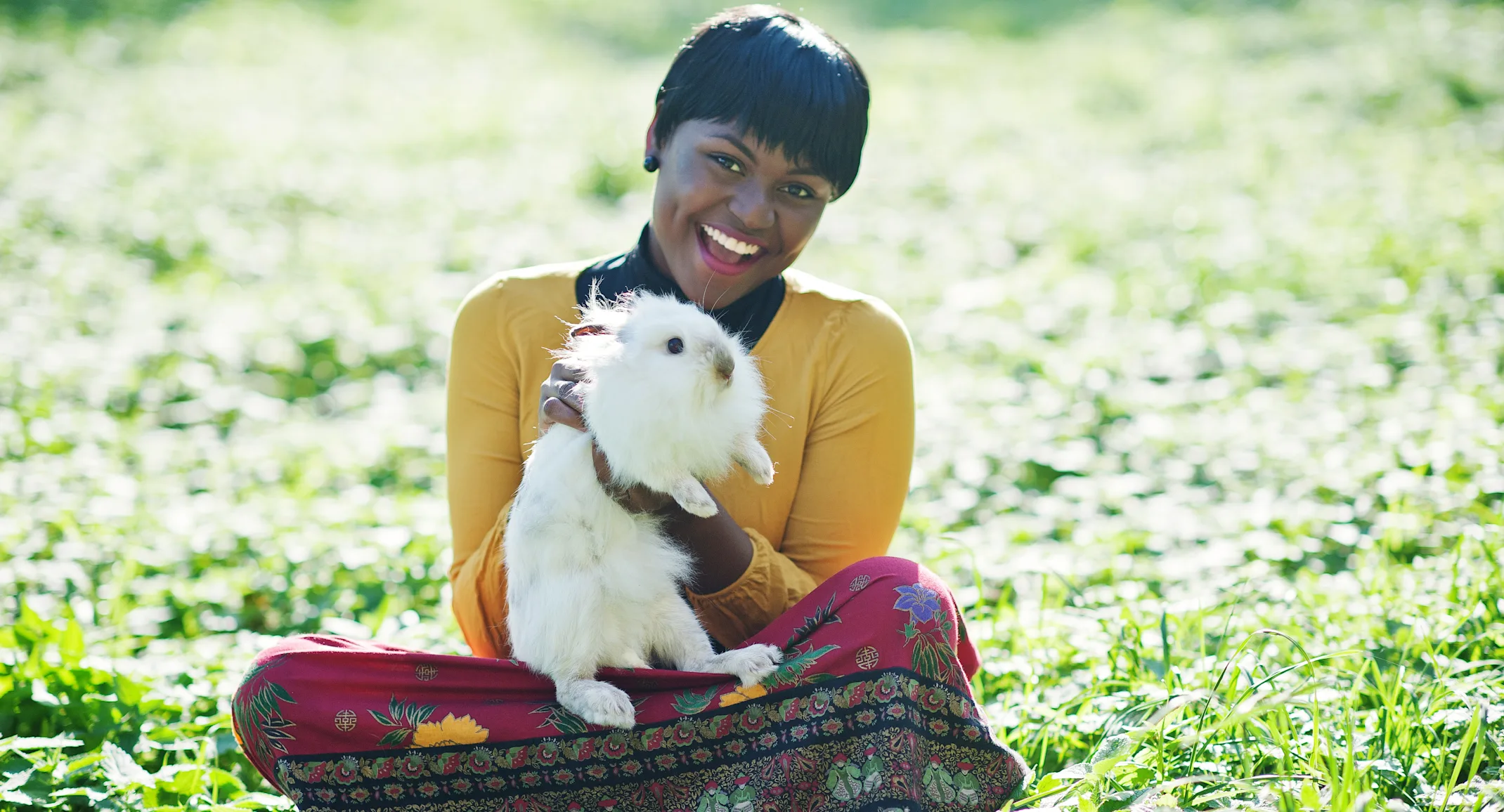Many people ask our office if rabbits make good family pets. The answer is a resounding ‘YES’! They make great pets that are easy to care for (with a little advance instruction) and provide fulfilling, personable, and yes, intelligent companionship. A large number of our clients develop deep relationships with their bunny and mourn them terribly when they pass on.
Rabbits come in many sizes and breeds. Diminutive Lops are well suited for apartment living. The flat-faced Lion-Head rabbit is adorable and is also a perfect size for apartment living. Some of the larger breeds, a Flemish Giant, for example, maybe too large for a small apartment and maybe best kept outdoors.
Thanks to new-found knowledge of rabbit ecology, husbandry, and Veterinary Medicine, today bunnies can expect to live 8 to 12 years. Bunnies have a very specific set of dietary requirements that reflect the habits of their wild counterparts. Their feeding strategy evolved to continuously gather large amounts of poor-quality roughage to extract enough nutrients to survive and to, well, reproduce like rabbits. As such, feeding them is a full-time job (as you might expect pooping is too).
For our bunnies, this means a constant supply of roughage is required. That translates to an always-available source of fresh “racehorse quality” hay. Rabbits kept in an enclosed space (always a good idea when not supervised) with plenty of hay will create a ‘kitchen’ space and a ‘toilet’ space for eating and pooping. Adding fresh vegetable greens daily will provide enrichment, nutrition, and water. Pelleted diets are available for young, growing animals but should be limited in adults or obese animals, to a tablespoon daily.
Bunnies do have some bad habits, however. Unsupervised free-ranging bunnies may chew electrical cords or the kick-boards along the floor. Some bunnies develop a craving for carpet fibers, with unfortunate results. And some bunnies will only eat their pelleted diet at the expense of hay. This can cause obesity, dental issues, and in extreme cases, a small intestinal slow-down that may be fatal.
Finally, bunny society (and sex!) should be addressed. Rabbits kept in pairs will often form deeply bonded relationships. Female rabbits should be spayed young (at four months) as close to 80% of intact females older than 7 years develop uterine cancer. Male rabbits can be neutered at 4 months of age as well, but it is generally done to prevent reproduction or to treat aggressive behavior (yes, some bunnies can get aggressive and domineering!).
In conclusion, rabbits make great family pets that provide a world of fun, love, and affection. While not for families with young children, they are excellent pets for busy families and naturally teach our youth responsibility, dependability, and accountability. It is always a good idea to consult with your veterinarian before or after you adopt a rabbit. Dr. Ryer is available for appointments to see your bunny and Dr. Baker works in the ER department for bunny emergencies. Please call ahead to be sure they are working before coming down.

